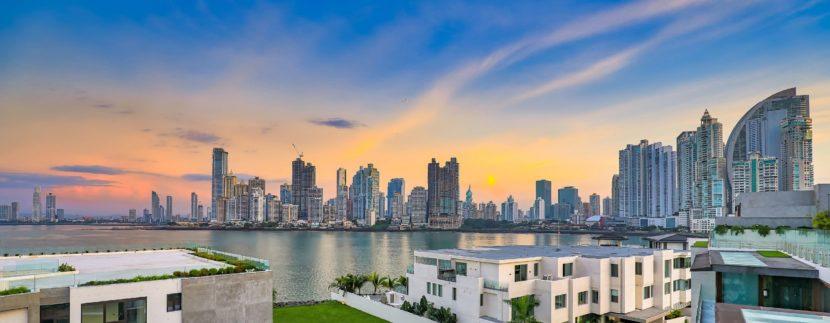Expert Insight into Panama’s New Red Carpet Visa

Panama’s new Red Carpet Visa, introduced two months ago, provides an opportunity for property buyers to quickly and easily earn a permanent Panama residency visa, an exciting new benefit for real estate investors and international home buyers.
To learn more about Panama’s new version of the “Golden Visa,” we turned to immigration lawyer Ricardo Faraudo, a partner in DENFAB Law. His firm works with a wide variety of individuals and corporations to streamline the visa process, and he’s been closely following the new developments.
Panama already has a variety of visa options, including the Pensioner Visa, also known as Panama’s Retirement Visa; the Economic Solvency Visa, which also was a form of Golden Visa; and the Friendly Nations Visa, which provides a clear path to legal permanent residency for citizens of 50 countries.
In an interview, Mr. Faraudo discussed the advantages of the Red Carpet Visa, upcoming changes in the different visa options, and why there is a special incentive to buy property in the next two years.
What’s your reaction to the new Red Carpet Visa?
It has a couple of things that right now are an improvement on any other type of visa. Number one is that you can process a visa without having to come to Panama. You can start the application from your own country. The application will take only 30 working days. And this application will be handled directly with the Ministry of Commerce instead of the Immigration office. They won’t be mixed in with all the other volume of processes and immigration issues. They’ll be handled quicker, and there will be more personal attention to these applications.
And the threshold is a $500,000 investment?
This visa allows for three different types of investment. To meet the threshold there’s three ways that you can do it: number one is you can buy property for $500,000 or more. Number two, you can invest in the Panamanian stock market. Or you can establish a time deposit in any Panamanian bank for $750,000.
And you have to keep the investment for five years, correct?
Correct. But the other perk is that for the first two years they are allowing a real estate investment of $300,000 instead of $500,000. So, for the next 24 months, a $300,000 purchase in Panama real estate would qualify you for this type of residency.
It seems like the Red Carpet Visa is an update of the Economic Solvency Visa, which was Panama’s form of “Golden Visa?”
More or less. But the big difference with the Red Carpet Visa is that you can obtain your indefinite residency within 30 days. With the economic solvency, you had to first apply for a two-year temporary visa. The application process would have been six months. It could take almost four years to obtain an indefinite residency. And not to mention all the trips back-and-forth, as you have to apply in person at every steps.
Did the government make any changes to the other visas?
They have not said anything publicly, but it is understood that they will make changes to the Friendly Nations Visa.
What do you anticipate?
Well, the one thing I know for sure is that it’s not going to be an indefinite residency application to start. They are going to change it to a format like the economic solvency visa, where you first apply for a two-year temporary residency and then after two years you apply for the indefinite. And they are going to require some sort of investment. It could be an investment in real estate or opening a small business. We don’t the numbers yet or the fine print. The changes have not been issued.
Many people may know the Pensioner or Retirement Visa, which gets a lot of attention around the world. Have there been any changes in that?
No, it’s pretty much the same. Basically, if you are receiving a Social Security payment of more than $1,000, you can apply and obtain the Pensioner Visa.
What are some of the benefits of the Pensioner Visa?
You receive the same benefits as Panamanian retirees. You have 25 percent discount on when you go out to dinner, to hotels or traveling. But the discounts that you obtain when you have a Pensioner Visa, you can also obtain if you are of the age of retirement, even if you are on the Friendly Nations Visa. The thing with the Pensioner Visa is you can obtain the visa even if you’re 50 if you are receiving a pension. Not many people have that, but you have some people on military pensions or people receiving disability.
Is it difficult to get the Pensioner Visa these days?
It’s tricky because it’s different than the Friendly Nations Visa. In the Pensioner Visa you are providing a document that says that you’re receiving a pension. They are going to review that letter and based on the wording they’re going to accept it or deny it. In the U.S., if you receive Social Security, they’re very familiar with the Social Security letter. It’s pretty straightforward.
The problem is that many people want to push back the date when they start receiving their Social Security. And if you’re not drawing the pension, you can’t apply. The letter must say that you’re receiving it, not that you’re entitled to it.
But you can apply with a private pension?
Correct. But the problem the requirements for the private pension are different and there is a lot more paperwork. Generally, it’s been a lot easier to apply for the Friendly Nations Visa.
When does the Red Carpet Visa go into effect?
It’s already in effect.
You can apply for it now?
Yes
And you go to the Ministry of Commerce to apply, not Immigration?
Yes. They’re doing a one-stop window. They’re modeling it around the program for multinational companies, the SEM, and how they process work visas and residencies for all their employees. That’s handled through the Ministry of Commerce and it’s been very good. It’s been very easy. So, they’re kind of copying that format for the Red Carpet Visa.
What do you think the government is trying to accomplish with the new visa?
The government is definitely trying to move the real estate market. There’s a market for wealthy clients to establish physical residency in Panama. There are many countries in America, South America, and Central America that have a wealth tax and charge you tax for having properties or cash outside of their country. It’s a high amount. If you can establish a tax residency in another country, and Panama is very friendly towards that, you can avoid that tax. Panama doesn’t charge income tax on foreign income or interest gained on money.

